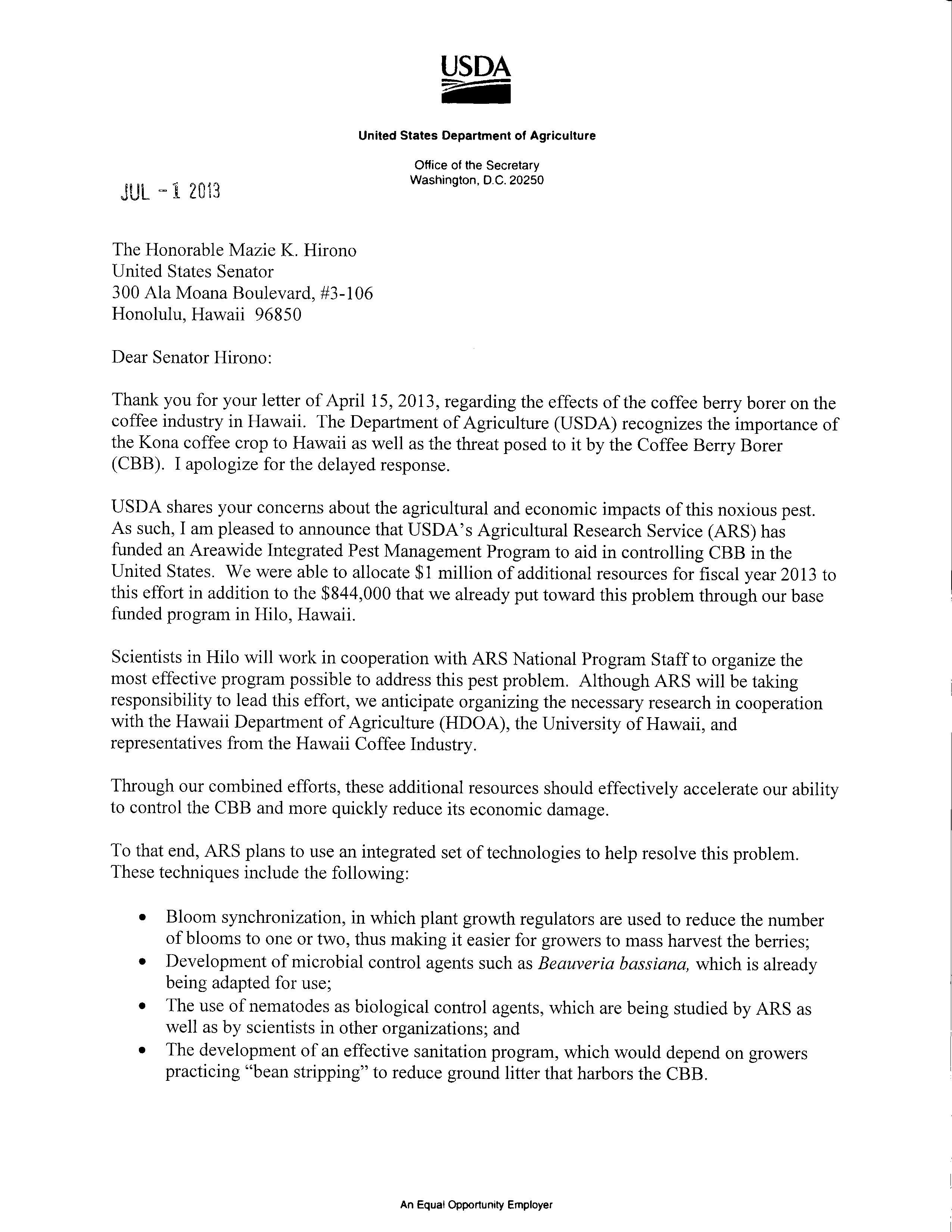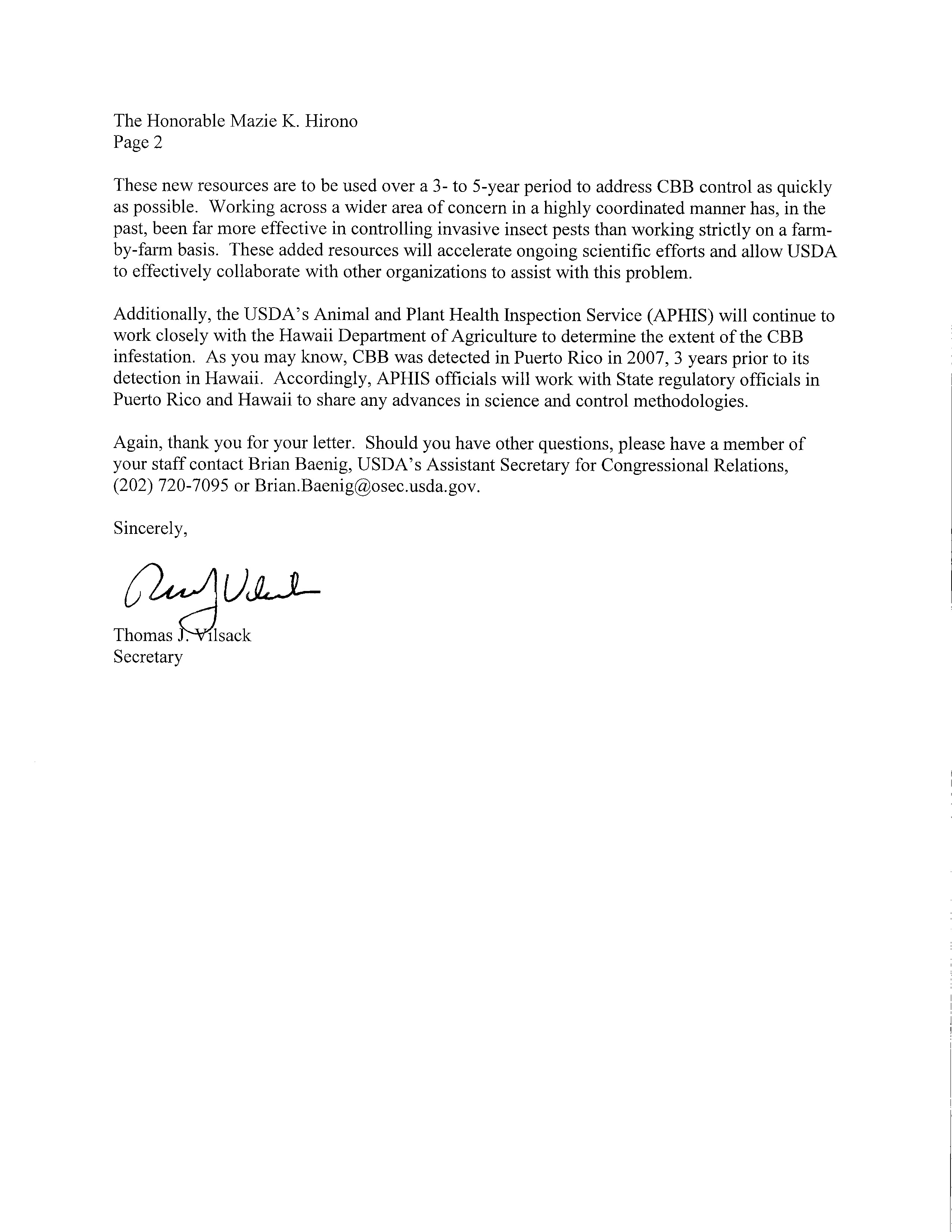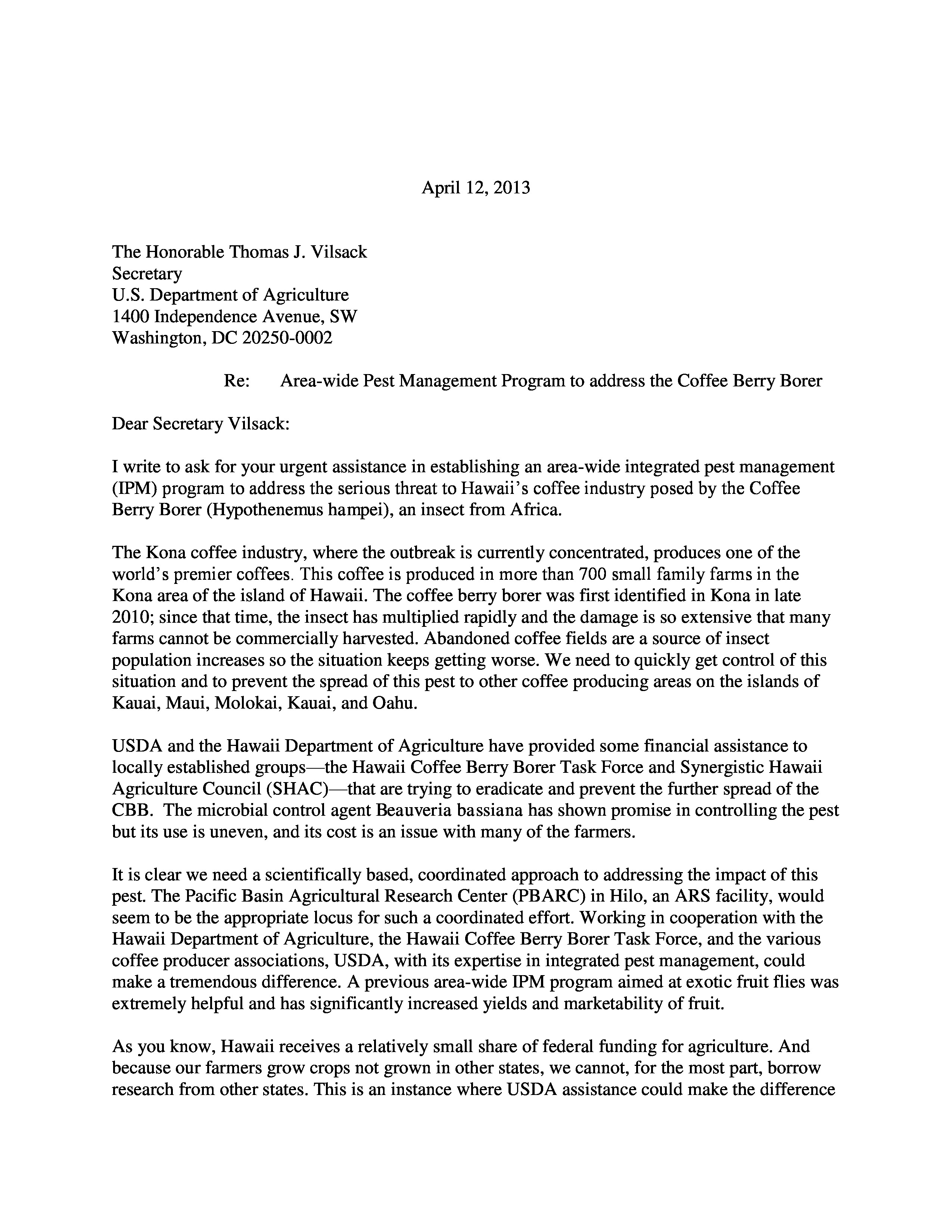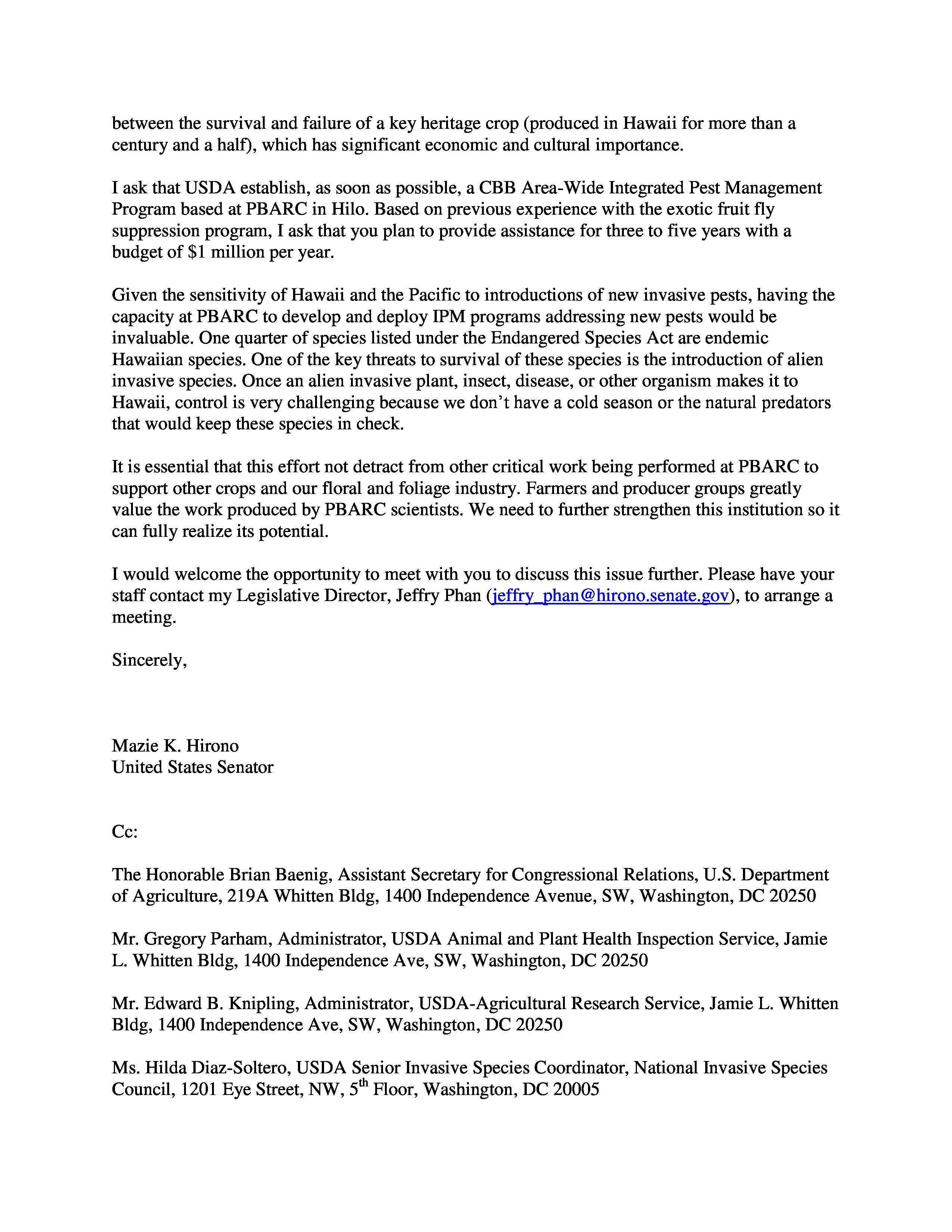HIRONO, USDA ANNOUNCE FIRST MAJOR FEDERAL INITIATIVE TO FIGHT COFFEE BERRY BORER
After Hirono Urged USDA To Take Action Against The Highly Destructive Beetle Earlier This Year, Department Agrees To Spend $1 Million Immediately To Set-Up Hawaii Operation To Fight Invasive Species
WASHINGTON, D.C. -- Senator Mazie K. Hirono and the United States Department of Agriculture (USDA) unveiled the first major federal initiative today to fight the coffee berry borer that has been ravaging Hawaii Island coffee farms for almost three years. The project, a new arm of the USDA’s integrated pest management program, will be a scientifically-based approach to fighting the invasive species. In the immediate term, USDA will spend an initial $1 million to set-up the Hawaii operation.
“This new initiative to fight the coffee berry borer is great news for Hawaii and our economy, and I am very pleased that the USDA has recognized the threat of this highly destructive invasive species,” said Hirono. “Our state produces some of the world’s best coffee, and coffee is an important export from our state. But the livelihood of Hawaii Island coffee growers is increasingly being threatened by the coffee berry borer, as many farmers are forced to abandon large portions of their yields due to infestation each year. That’s why I originally urged the USDA to set up this initiative and have been working closely with the department to begin its implementation. USDA, the Hawaii Department of Agriculture and the University of Hawaii will collectively work to help coffee farmers combat and contain this invasive species.”
The announcement of the new project comes after Hirono urged the department to set up a Hawaii operation to fight the coffee berry borer. After working closely with Hirono and Hawaii coffee farmers to assess the need for the program, USDA agreed to immediately implement a new initiative to fight the devastating invasive species.
“USDA shares your concerns about the agricultural and economic impacts of this noxious pest,” U.S. Agriculture Secretary Tom Vilsack wrote to Hirono in a letter earlier this month. “As such, I am pleased to announce the USDA’s Agricultural Research Service has funded an Area Wide Integrated Pest Management program to aid in controlling the coffee berry borer in the United States.”
Members of the Hawaii delegation have been working to get more funding for a possible program in the Farm Bill currently being considered in Congress. Ahead of USDA’s agreement to fund a program, Congresswoman Tulsi Gabbard introduced a successful amendment which was included in the Farm Bill in the U.S. House of Representatives that authorized funding for a USDA program. Congresswoman Colleen Hanabusa cosponsored the measure. Hirono introduced a similar measure in the Senate that was cosponsored by Senator Brian Schatz.
“The coffee berry borer has been a destructive force striking at the heart of Hawai‘i’s multi-million dollar coffee industry,” said Congresswoman Tulsi Gabbard. “In just two years, our treasured Kona coffee industry suffered more than $9 million in market losses, representing a roughly 25 percent revenue decrease. The economic impact has been deeply felt by coffee farms, most of which are small family farms, and coffee processors are being forced to lay off workers or reduce hours. The USDA initiative being established in Hawai‘i will help local coffee growers combat the effects of this invasive and destructive pest.”
The new program will be tasked with distributing effective treatments to local farmers and educating them on the most effective treatment practices, researching the genetic makeup of the coffee berry borer to find its weakness and disposing of infected plants. In his letter, Vilsack explained that the new USDA initiative will coordinate with local coffee farmers, the University of Hawaii and the Hawaii Department of Agriculture to use the following techniques to fight the borer:
- Distribute the most effective repellents to farmers and training them on how to best use these treatments
- Research new types of pest controls that could be more effective in killing the beetles
- Create a plant sanitation program that decreases the opportunities for borer to reproduce and spread
- Study the borer to find how the species is similar or different that other agricultural pest in order to develop better methods for controlling the pest
Hawaii Island is home to more than 700 small coffee farms. In 2011, coffee farmers in Hawaii produced more than 8 million pounds of coffee, valued at more than $30 million.
The borer is an insect native to Central Africa that lives, feeds and reproduces in both immature and mature coffee berries. This damage can have a significant negative impact on the quality and quantity of coffee crop yields. As a direct result of the coffee berry borer, many farmers in 2012 have expressed concerns that their yields were in jeopardy. Recent reports have found infestation rates of up to 80% for some Hawaii farms.
Vilsack’s letter to Hirono agreeing to start the program, as well as her initial call for the USDA to create the initiative, read below:




